DlyFull B2 Universal LCD Battery Tester
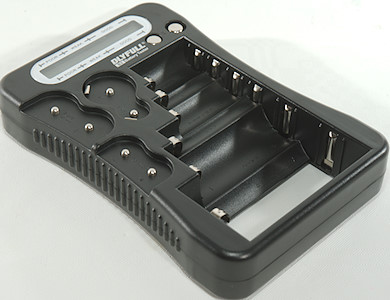
This tester has slots and places for many common battery sizes, but it do not support LiIon batteries.
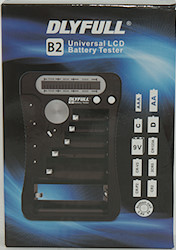

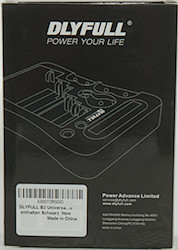

The tester arrived in a cardboard box with supported battery types listed.
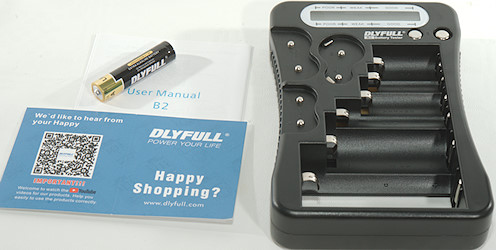
The box included the tester, a battery and a instruction sheet.
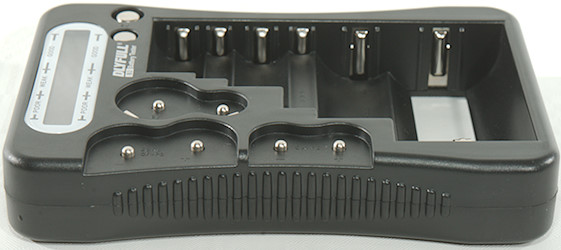
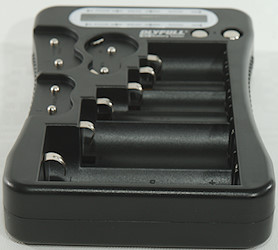
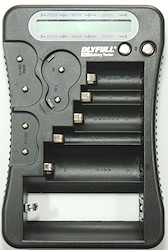
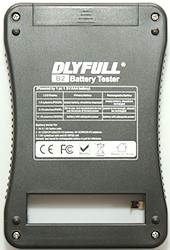
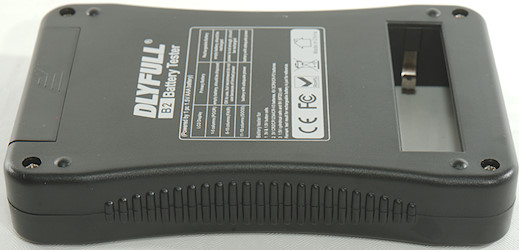
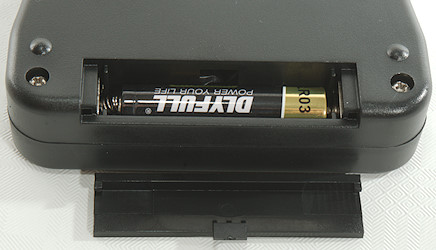
A single AAA battery is used to power the tester.

The display is a couple of bars with markings on the tester what the number bars means:
1-5: Poor, 6-10: Weak, 10-18: Good
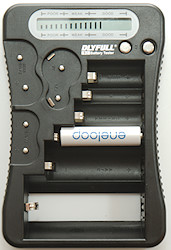
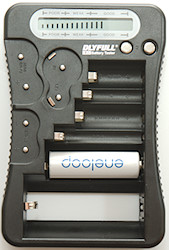
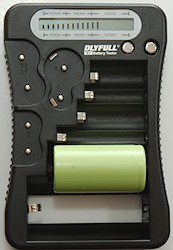
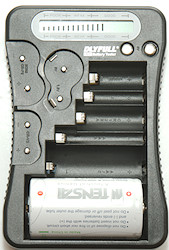
Measurements
-
Power consumption when testing is 27mA
-
Power consumption when display goes automatic off is 27mA
-
Power consumption when off is 80uA
-
Will automatic turn display off after 60 seconds.
-
Turns off when internal battery voltage is below 0.7V, reading is stable until then.
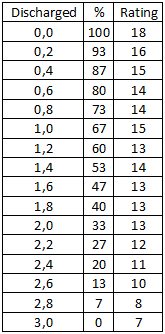
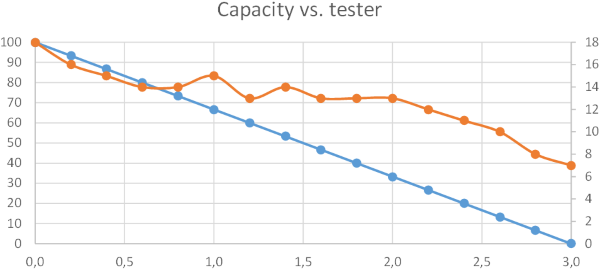
I tested with an alkaline, it was discharged with 0.1A in 0.2Ah steps. I stopped when the battery was down to 0.5V.
The discharged column is Ah (blue curve) and the rating (red curve) is how many bars are on the display, anything above 10 is good.
The value goes up when the battery rest a couple of hours, before I check the capacity.
If I had tested with lower load I could have discharged the battery mode.
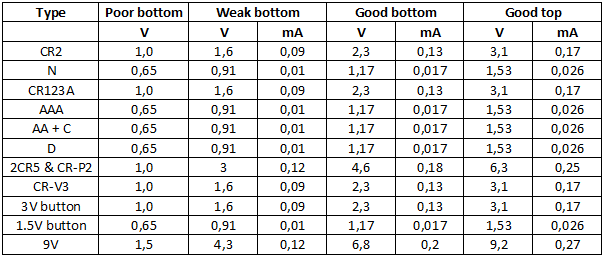
I tested all positions for voltage and current at 1, 6, 10, 18 bars, the table above show the result.
Bottom=First bar in section, Top=lasts bar in section.
Curve from a Alkaline battery test
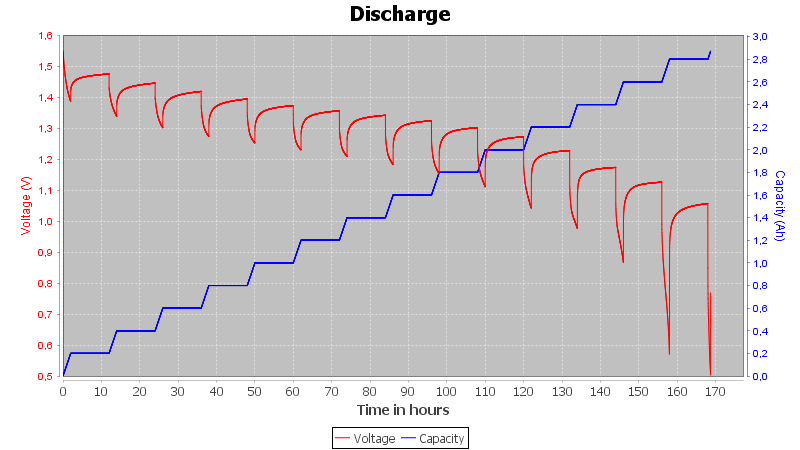
The job of a battery tester is mostly hopeless, here I discharged a AA battery over a week, 2 hours on and 10 hours off. Every time I turn off the voltage will slowly creep up.
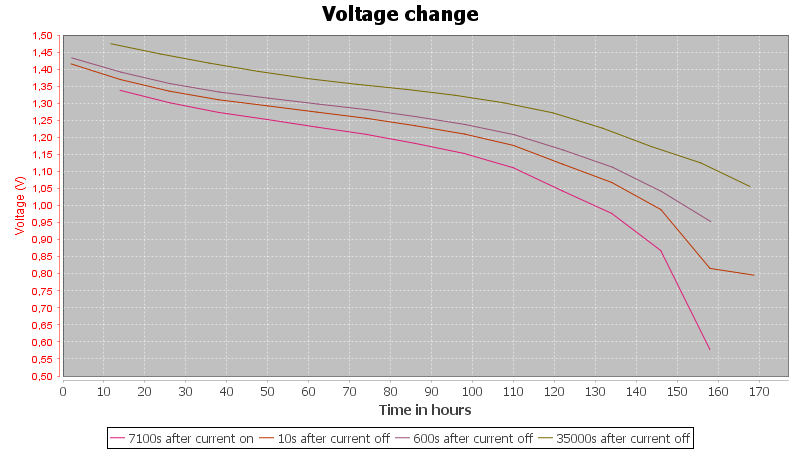
This is again the result from above, but shown another way. The top curve is battery voltage after about 10 hours without load, next down is 10 minutes after load is removed, the 3. curve is 10 seconds after loads is removed and the bottom curve is with load on.
A battery tester may seen any of the 3 top curves, depending on when you test the battery, this means the same battery will look much more depleted when just removed from a active device, that a rested battery.
Tear down
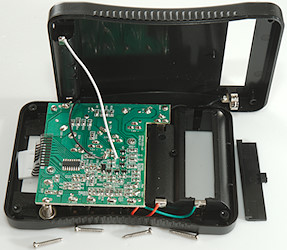
To open I had to remove four screws.

Due to the display and some wires I did not want to remove the circuit board, especially because it is single sided and there is nothing on the other side, except battery test connections.


There is a lot of parts inside the tester, each slot has its own sense resistor, there is not any real load resistors. There are two chip, the large one is unmarked and control the LCD display. I could not find any data on the small one.
Conclusion
This battery tester is mostly a voltmeter calibrated for battery state instead of voltage.
Notes
I got the tester from a DlyFull for review
Here is some voltage tables for estimating remaning energy in LiIon batteries